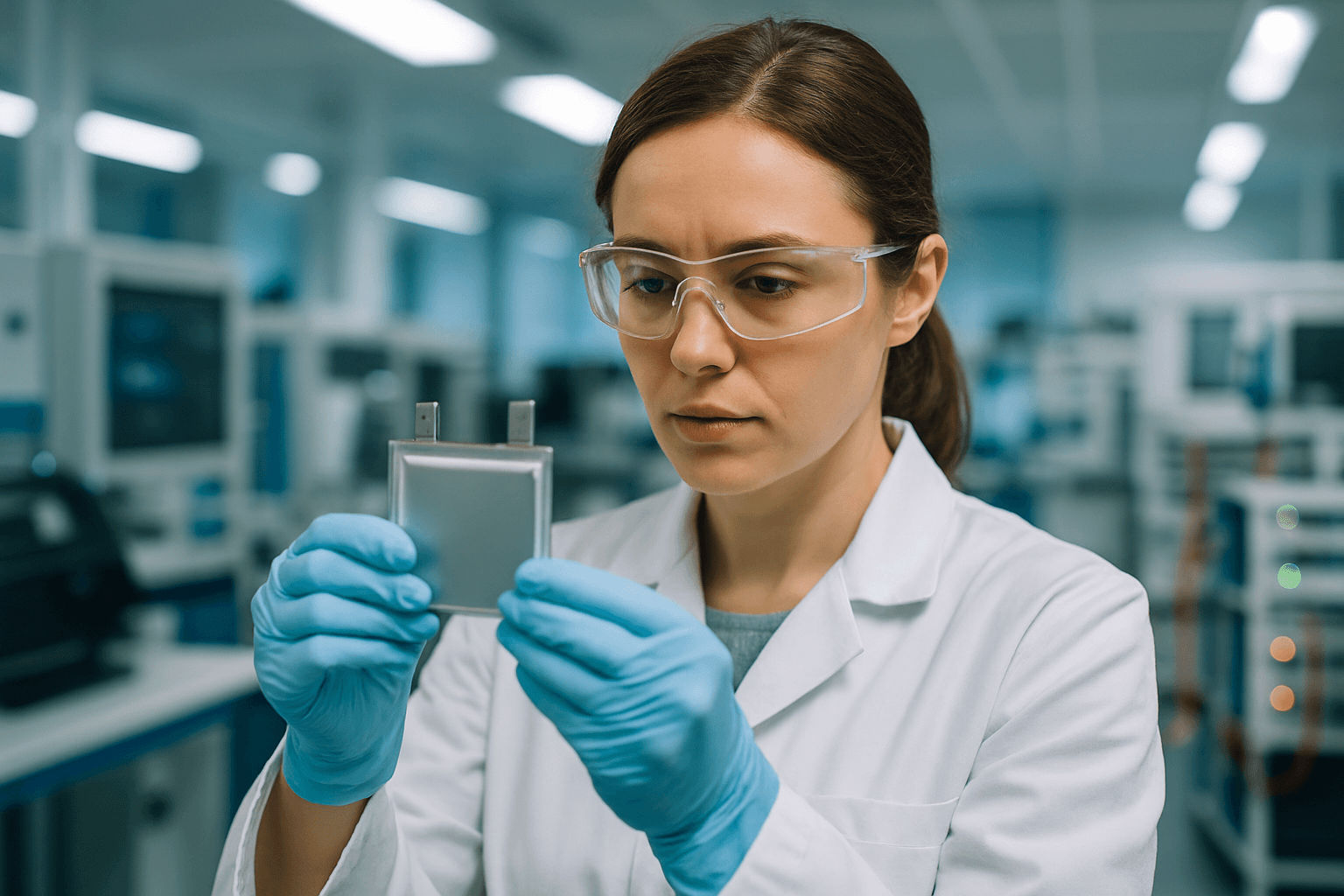A U.S. firm, Factorial Energy, is making significant strides in electric vehicle (EV) battery technology with its advanced solid-state cells, demonstrating capabilities that could dramatically extend vehicle lifespan, enhance range, and reduce charging times. While specific prototype cells have already achieved over 2,000 cycles in testing, pushing the boundaries of current battery durability, the broader implications suggest a potential doubling of EV battery life.
This breakthrough centers on Factorial’s proprietary Factorial Electrolyte System Technology (FEST®) and Solstice™ all-solid-state battery cells, which address long-standing challenges in battery performance, safety, and scalability.
The Core Technology: Solid-State and Dry Cathode Innovation
Factorial Energy, based in Massachusetts, is at the forefront of solid-state battery development, a technology widely regarded as the next generation for EVs. Unlike conventional lithium-ion batteries that use liquid electrolytes, solid-state batteries employ a solid electrolyte, offering enhanced safety, higher energy density, and faster charging capabilities.
A key innovation from Factorial is its novel dry cathode coating process used in manufacturing. This method eliminates hazardous solvents and energy-intensive processes like solvent evaporation and formation, making the production more sustainable, energy-efficient, and cost-effective. This “quasi-solid approach,” as described by the company, differentiates it from other solid-state designs and maintains compatibility with existing lithium-ion manufacturing infrastructure, which is crucial for scaling production.
Unprecedented Cycle Life and Energy Density
Factorial has reported impressive performance metrics for its solid-state cells. Smaller Solstice™ prototypes have demonstrated exceptional durability, achieving over 2,000 charge cycles during lifecycle testing. For context, many current EV batteries are designed for 1,000 to 1,500 cycles before significant degradation, making Factorial’s achievement a substantial leap towards extended battery longevity. The company’s 77Ah FEST® cells, validated in partnership with Stellantis, have shown over 600 cycles while progressing towards automotive qualification, along with an energy density of 375 Wh/kg. This energy density is approximately 50% higher than some current Tesla battery technologies and significantly exceeds the industry average of 200 to 300 Wh/kg for lithium-ion batteries.
Impact on EV Lifespan
The high cycle life directly translates to a longer operational lifespan for electric vehicles. If an EV battery can endure 2,000 or more full charge-discharge cycles, it could theoretically power a vehicle for well over 300,000 to 500,000 miles, depending on the vehicle’s range per charge. This extended durability could significantly reduce the total cost of ownership for EVs and address consumer concerns about battery replacement costs and vehicle longevity. The potential to “2x lifespan” suggests that these advancements could allow EVs to remain on the road for far longer than currently expected, aligning more closely with the lifespan of traditional internal combustion engine vehicles.
Faster Charging and Wider Operating Temperatures
Beyond longevity, Factorial’s technology promises to alleviate another major pain point for EV adoption: charging time. The FEST® technology enables fast charging from 15% to 90% in just 18 minutes at room temperature. This rapid charging capability makes EVs more competitive with gasoline-powered cars in terms of refueling convenience.
Furthermore, these solid-state batteries demonstrate robust performance across a broad range of temperatures, operating efficiently from -30°C to 45°C (-22°F to 113°F). This wide operating range surpasses previous solid-state limitations and ensures consistent performance in diverse climates, where cold weather can significantly impact the range and efficiency of traditional lithium-ion batteries.
Strategic Partnerships and Future Outlook
Factorial Energy has attracted significant interest from major automakers, forging joint development agreements with industry giants such as Mercedes-Benz, Stellantis, Hyundai Motor Company, and Kia Corporation. Stellantis, which invested $75 million in Factorial in 2021, is already planning to integrate Factorial’s solid-state batteries into a demonstration fleet by 2026. Mercedes-Benz is also actively involved, with an EQS equipped with Factorial’s solid-state cells reportedly achieving over 1,000 kilometers (approximately 620 miles) of range on a single charge.
The ability of Factorial’s batteries to be integrated seamlessly with existing manufacturing processes is a significant advantage, ensuring scalability and efficiency as the company moves towards commercialization. Factorial’s 200-megawatt-hour pilot facility in Methuen, Massachusetts, stands as the largest solid-state battery production line in the United States, further underscoring its commitment to bringing this technology to market.
As battery technology continues to evolve, Factorial Energy’s breakthroughs in solid-state and dry cathode processes position it as a key player in the next generation of electric mobility, promising more durable, efficient, and user-friendly EVs.

